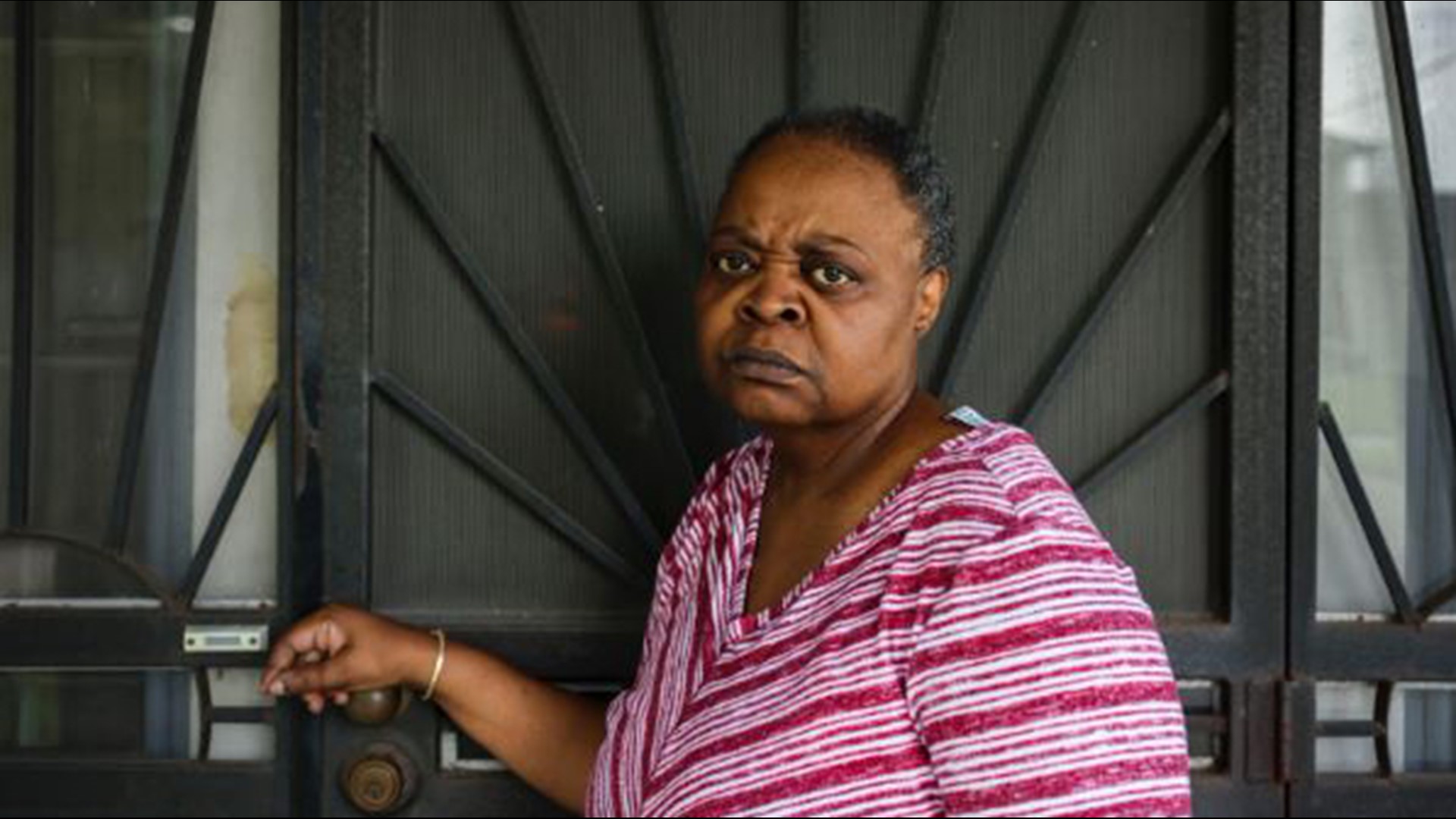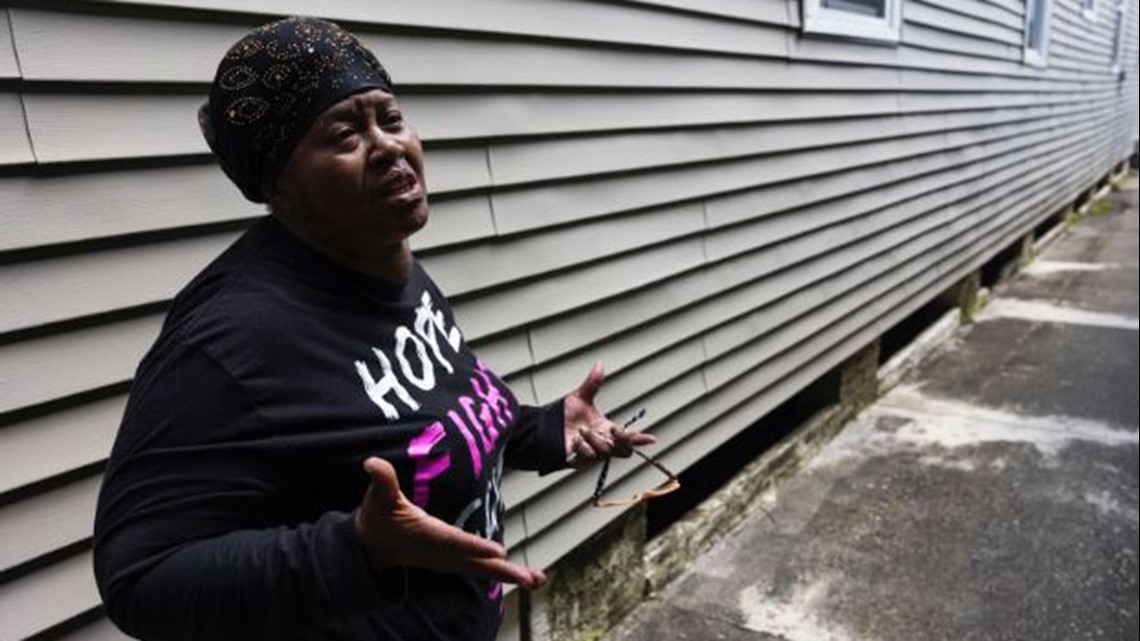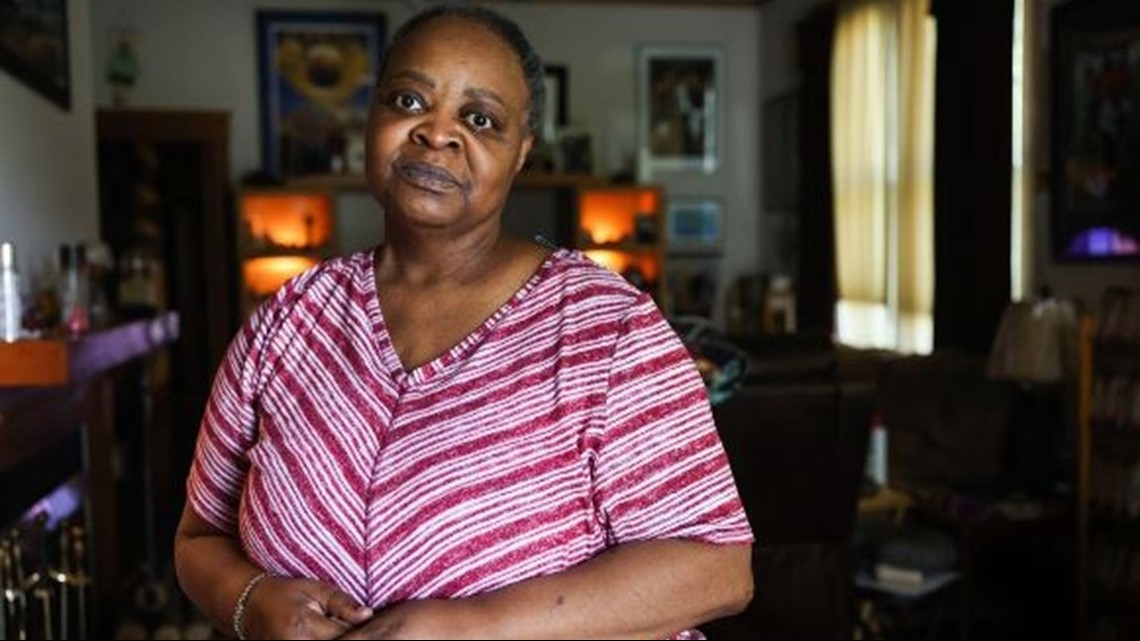Louisiana sued Hurricane Katrina survivors for misusing recovery grants. Now it has halted collection efforts.
After WWL-TV investigation, the state says it hopes a federal agency will approve a settlement that will allow it to drop the lawsuits.

The state of Louisiana is pausing efforts to collect money from thousands of homeowners who accepted hurricane recovery grants and used them for repairs rather than elevating their houses. The decision comes after news outlets presented the state with evidence showing that its lawyers have stepped up the pace of court filings even as the state hopes to wipe away the lawsuits entirely.
Jay Dardenne, the head of Gov. John Bel Edwards’ Division of Administration, said Monday that the state has agreed to settle a related lawsuit against a company that ran the recovery program after Hurricane Katrina. If the federal government approves that agreement, he said, the state would drop the suits against homeowners who didn’t follow the rules on how they spent elevation grants.
An investigation by WWL-TV, ProPublica and The Advocate | The Times-Picayune found evidence that some of those people were told they could use the $30,000 grants on repairs instead. Years later, the state sued about 3,500 families — roughly 1 in 9 grantees — demanding the money back.
Dardenne said he was troubled by evidence gathered by the news organizations showing that the law firm Shows, Cali & Walsh, which represents the state, has accelerated its efforts to collect tens of thousands of dollars from each homeowner.
With the state on the cusp of a solution, “there’s no reason to try and take any more cases to judgment,” Dardenne said.
He said the state is waiting for the U.S. Department of Housing and Urban Development to approve a proposed settlement between the state and the company it hired to manage the federally funded Road Home recovery program from 2006 to 2009.
In 2016 the state sued that firm, ICF Emergency Management Services, accusing it of mismanagement. A mediator helped the two sides come to an agreement in late 2020.
The state wants to send the money it expects from that settlement to HUD to satisfy its obligations for Road Home grants that weren’t spent according to the rules. If HUD agrees, the state will drop its lawsuits against homeowners and cease collection efforts in cases that have gone to judgment, Dardenne said.
“I think we’re inching very close to that happening,” Dardenne said.
Dardenne said he and Edwards have spoken with HUD Secretary Marcia Fudge about accepting the proposed ICF settlement. When asked if he believes Fudge is in favor of dropping the suits, Dardenne said, “I do.”
A HUD spokesperson declined to comment on that characterization, but said, “HUD continues to work with the state.”
Meanwhile, the litigation continues.
In New Orleans, home to almost half of the elevation lawsuits, lawyers filed almost as many motions for judgment in a recent six-week span as they had in the first three and a half months of the year.
Lawyers with Shows, Cali & Walsh filed 42 motions for judgment from January to mid-April, according to court records. Over the following six weeks, they filed 38 motions seeking roughly the same amount — $1.2 million.
About half of the filings in both periods were for default judgments, a ruling that can be imposed when a defendant fails to respond in court. Such judgments result in liens on the properties, preventing them from being sold until the debt is paid.
Dardenne said the state has not sought to speed up recovery efforts. He said any increase in court filings likely reflects the timeline of individual cases.
Among those targeted was New Orleans homeowner Celeste Matthews. The same day she was featured in news stories by WWL-TV, ProPublica and The Advocate | The Times-Picayune that detailed the lawsuits, the law firm notified her that it would pursue a default judgment against her.


U.S. Rep. Troy Carter, a Democrat whose district includes much of New Orleans, where many of the lawsuits have been filed, said last week the state should put such filings on hold.
“Conversations are getting more frequent and focused in these past few weeks in the work to end the injustices of the Road Home program,” Carter said. “The state should not continue, and is not required to, keep exacting these punishing actions against my constituents.”
Louisiana Seeking $103 Million From Homeowners
The lawsuits stem from Road Home elevation grants that were awarded to about 32,000 homeowners whose houses were damaged by hurricanes Katrina and Rita. A majority lived in lower-income neighborhoods and communities of color.
The money, typically $30,000, was supposed to be used to raise homes off the ground to prevent future flooding.
An investigation by the news organizations found that the state Office of Community Development and its contractor, ICF, mismanaged the program. They distributed grants without verifying that people were eligible, according to the testimony of a top state official. Some homeowners said Road Home representatives told them they could use the money to rebuild.
HUD, which funded the program, found widespread noncompliance with grant requirements. The agency told the state to recover any misspent funds, leading to the lawsuits.
The state is seeking $103 million in the elevation lawsuits. So far, it has recovered about 5% of that from 425 families. Any money recovered would be returned to HUD.
The news organizations’ investigation sparked anger and calls from housing advocates and politicians to end the lawsuits. The New Orleans City Council passed a resolution calling on the state to drop the lawsuits.
Retired U.S. Army Gen. Russel Honoré, who led federal troops into New Orleans after Katrina and is now an environmental advocate, called the state’s legal actions against its own residents a “travesty.”
“The house-raising issue after Katrina was a mess from the day it started,” he said.
Louisiana “Anxiously Awaiting” HUD Response
The state and HUD have been talking for years about what to do about people who didn’t elevate their homes. Documents provided by the state to the news outlets show the solution hinges on the resolution of the state’s lawsuit against ICF.
In its lawsuit, the state alleges ICF committed “numerous breaches” of its contract, citing errors in handling files, deciding who was eligible, calculating grants and handing out the money. At one point, the state estimated ICF handed out more than $137 million in grants that were either miscalculated or paid to ineligible homeowners, though Dardenne said that figure has decreased.
ICF has denied those allegations in court. Spokesperson Lauren Dyke has said the firm “worked within the policies put in place by the state.”
Shortly after the state sued ICF, the two sides entered settlement talks and eventually came to an agreement, documents show. The amount of the settlement was redacted in documents provided by the state.
Pat Forbes, executive director of the Louisiana Office of Community Development, which oversaw the Road Home program, wrote HUD in May 2021, asking if the proposed settlement would end the state’s liability for ineligible grants. A HUD official responded with steps the state must take to close out the program. Four months later, Forbes asked for an update. HUD said it should have an answer by March.
When that deadline passed, Dardenne wrote Fudge and Carter, saying the state and ICF were “anxiously awaiting” HUD’s answer.
In an April letter to Dardenne, a HUD official said issues with the state’s recordkeeping system had delayed the agency’s response. However, the official said the agency was analyzing the data and its analysis would be provided to HUD’s Office of Inspector General. After that, the letter said, HUD would be able to provide “sound guidance” on the proposed settlement.
HUD’s decision will determine what happens with the suits, Dardenne said.
When the ICF case is settled and HUD closes out the Road Home program, “all the pending cases are going to be dismissed,” he said. “The judgments are not going to be pursued. I mean, this would end everything.”
Homeowners Say They Were Pressured to Agree to Payment Plans
Two homeowners and an attorney representing two others said lawyers representing the state tried to strong-arm them into agreeing to payment plans. None of their accounts stem from efforts to collect this year.
Alice Sanders, who lives on Social Security, said Mary Cali, a senior partner at Shows, Cali & Walsh, “badgered” her into signing a $200 monthly payment plan last May and said Sanders would lose her home if she didn’t. Sanders did not have an attorney.
“It leaves me with no money. I can’t even buy my own groceries or medicine,” said Sanders, an associate minister who lives in Baton Rouge. “It’s a sin, what they’ve done against their own residents.”
Cali said that claims she pressured homeowners are “patently false. I have never threatened a homeowner with the loss of their home, and I find such allegations offensive.”
Forbes said he has “no reason to believe” the state’s attorneys threatened anyone or insinuated the state would take their home. The state will not foreclose on homeowners to collect these debts, he said.
Attorney Jennifer Jones said two families being sued by the state told her John Walsh, another senior partner in the firm, pressured them to sign agreements, called consent judgments, to repay the money. Jones, who only took on the families as clients later, said neither had a lawyer at the time.
“That’s a disgrace, for a plaintiff’s lawyer to be doing that to someone who is unrepresented,” Jones said. “They don’t know what the lawyer is telling them.”
Walsh did not respond to a request for comment.
Donna Hilliard, who contacted the news organizations after the investigation was published, said she, too, was a victim of the law firm’s aggressive tactics.


A tree pierced her roof during Hurricane Katrina, but the home never flooded. The house was already a couple feet off the ground, so when she and her husband, Honoray, were offered Road Home money in 2007, they checked a box saying they didn’t want an elevation grant.
And yet, two years later, the Road Home program awarded them the elevation money. Hilliard said she never planned to raise her house, but a Road Home representative told her not to fret.
The state sued the Hilliards in 2021 because they had not raised their home.
Hilliard said she was “bullied” last year by three attorneys, including Cali, who told her she should agree to a payment plan.
A longtime hospice nurse, Hilliard was having her own health problems at the time. She was undergoing chemotherapy, and she and her husband couldn’t afford a lawyer.
So they signed an agreement in February to pay the state $250 a month for five years, with a $15,000 balloon payment due at the end. Now 56 and using a cane, she doesn’t know how she’ll afford it.
“I just want them to stop it now, so that I could be able to live whatever time I have left without that hanging over my head,” Hilliard said. “I don’t look for nobody to do nothing for me. When you do me wrong, just fix it.”
About our reporting
This article was produced in partnership with ProPublica’s Local Reporting Network in partnership with The Advocate | The Times-Picayune, and it was also co-published with WWL-TV. Sign up for Dispatches to get stories like this one as soon as they are published.

